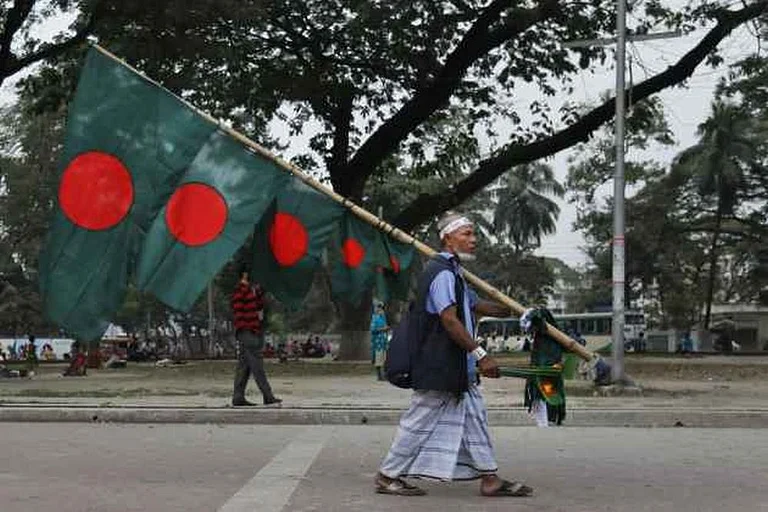September 11 marks the birth anniversary of Indian human rights advocate Vinayak Narahari, better known as Vinoba Bhave, an ardent Gandhian who is known for launching the Bhoodan movement among other things. September 11 also marks the anniversary of an iconic speech given by Indian thinker and philosopher Swami Vivekananda in Chicago in 1893. The speech at the World's Parliament of Religions is celebrated for Swami Vivekananda's impressive articulation of India's cultural ethos and its ancient values while underlining its philosophical acceptance of the truth guiding every religion.
To mark the two notable milestones, Prime Minister Narendra Modi on Sunday tweeted both birthday messages for Bhave and remembered Vivekananda, a social reformer and spiritual figure that the BJP historically tried to appropriate.
Paying his tributes to Bhave, who was born in 1895, Modi tweeted, "His life was a manifestation of Gandhian principles". He also lauded Bhave's passion for social empowerment. It was Bhave who gave the clarion call of 'Jai Jagat.' "We are inspired by his ideals and are committed to realising his dreams for our nation," Modi tweeted.
He also noted the "special connection" September 11 has with Swami Vivekananda and shared the speech on Twitter. "It was on this day in 1893 that he delivered one of his most outstanding speeches in Chicago. His address gave the world a glimpse of India's culture and ethos," the PM said on the microblogging site.
Who was Vinoba Bhave?
Born in 1895, Bhave dedicated his life to propagating Gandhian values and is particularly known for "Bhoodan" campaign as he persuaded people across the country to donate a part of their land that he distributed among the landless poor.
His mass movements were aimed at ensuring a better quality of life for the poor and downtrodden. His emphasis on collective spirit will always continue to inspire generations, he said.
Bhave, who had been described by Mahatma Gandhi as someone who was absolutely against untouchability and had an unwavering commitment to the cause of India's freedom. Bhave, however, had drawn criticism from sections of Indian polity and academia after he supported the 1975 Emergency enforced by then Congress Prime Minister Indira Gandhi.
Who was Swami Vivekananda
Swami Vivekananda is a spiritual and intellectual icon of India and is venerated by politicians to date for his contribution to nation-building and national regeneration. The spiritual pioneer was the founder of the Ramakrishna Mission and Ramakrishna Math, which provided the core teachings of spirituality worldwide. Vivekanda's gift of gab and his rebellious yet humble words earned him the title 'A wonder of oratorical powers'. He gained wide fame internationally at a time when India was still a British colony.
In 1893, Vivekananda represented India at the World's Religions Parliament Conference in Chicago where he delivered an iconic and bold speech in which he said that 'All the religions are different paths leading to the one Lord'. The day went on to become of the most significant moments of his life and propelled him to instant popularity. His powerful words from the Conference over a century ago continue to endure today in theological and philosophical as well as political discourses.
Vivekanda's teachings and advice for the youth also remained relevant till date. "Arise, awake and do not stop until the goal is achieved," he said. His birth anniversary is celebrated as National Youth Day across the country.
Both Bhave and Vivekananda have had a deep impact on Indian morality. While Bhave contributed to a host of social movements that helped emancipate Indians in a post-colonial world, Vivekananda helped forge the global appeal of the Indian brand of spirituality.
(With inputs from PTI)


























